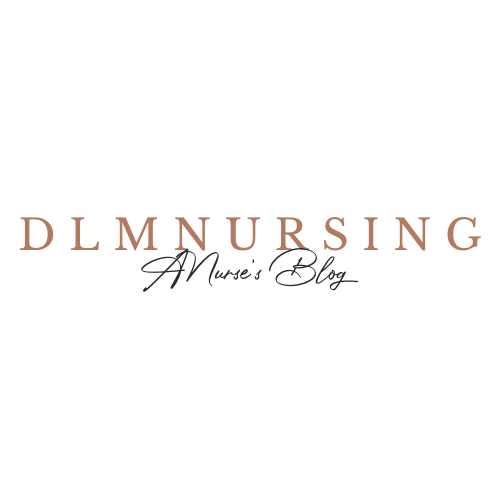How to Succeed In Your Nursing Clinicals
Going to your clinical site can be quite overwhelming. For those of you who are just beginning your nursing school years, each institution has a requirement amount of clinical hours, where each student will have to attend a specific facility to follow a staff member (either a Registered Nurse [RN] or a Certified Nursing Assistant [CNA]) and learn under them.
Pic from pinterest.com
A clinical site can vary according to your lecture or theory class. This means that if your lecture is about the Medical-Surgical specialty, your clinical site will probably be at a hospital setting at a medical-surgical unit. The amount of hours for each clinical specialty can vary according to your institution. For instance, our psychiatric clinical rotation required us to complete much less hours than our medical-surgical rotation.
Here is a breakdown of what my clinical rotations looked like:
Fundamentals: Nursing Home (Long-Term Care)
Head-to-toe physical assessments, bed baths, medication pass, bed-making, wound care, care plans.
Medical Surgical: Hospital
Head-to-toe physical assessments, understand diagnoses, understand medications and their use, pass medications, write care plans, start nursing skills (IV insertion, NG tube insertion, etc.), documentation, Operation Room (OR) rotation, Cardiac Rehab rotation, Intensive Critical Care Rotation.
Community: Projects
Group project included research on the community (focused on spreading the word on the community's efforts that go against drunk driving), interview community officials and their thoughts, present and publish our efforts.
Psychiatric: Acute and Outpatient Facility
Interview residents using effective communication techniques, determine which techniques were effective and non-effective, explore psych diagnoses and differentiate accordingly
Pediatric: Acute and Elementary School
Complete head-to-toe assessments, same duties under medical-surgical except there were no rotations.
Obstetric: Acute and Doctor's Office
Complete OB assessment, interview a patient, same duties under medical-surgical except rotations included different specialties (NICU, Labor and Deliver, post-partum)
Now let's get started with some tips on how to succeed and get the most of our your clinical experience.
1. Be on time!
If not on time, be there early! I can't stress this enough. Sometimes it takes more than a minute to get setup and get ready for your day. Get all your assessment papers ready, have your stethoscope around your neck, and get ready to start your day!
2. Get your assessment done early!
The earlier you finish your paper work (assessments and care plans), the more you can observe and learn from the nurse that you are following.
3. Look up your medications!
Before you give any medication with your clinical instructor, look up your medications. This is very important. Knowing your medications off hand will let you know what to expect after you give it. Your patients could ask you questions about the medication and educating them properly is a part of medication safety.
Your clinical instructor is constantly observing you during this process. Sticking to the 5 patient rights of medication safety is so important. You can get in a lot of trouble if you don't adhere to those rights. This is basic nursing fundamentals, don't ever forget them!
4. Have pocket clinical books!
It's nice to have references for everything, but carrying a big book to clinical is difficult and not functional. There are usually pocket versions for everything. For clinical, it would be best for you to have these pocket books on the go.
5. Have all your supplies ready!
Click here for the Must Haves for Clinicals! This article provides all the supplies that you'll probably need for clinical. Don't ever forget your stethoscope! Some instructors will send you home if your forget it.
Some include:
Extra pens and pencils
Watch
Stethoscope
Penlight
Scissors
Pocket books
Clipboard
Study notes/cards from lecture/theory
To make the best of your clinical experience, not only from a 'trying-to-pass' standpoint, but for your own personal gain, always study your pathophysiology in order to understand your patient's case. It serves no purpose to go to clinical, to come across a medical diagnosis, and have no clue on what it is and how to nurse through it.
Your clinical instructor will be asking you questions throughout your day and it is so important for you to be answer those questions with great confidence. Your clinical instructor will be looking at how you can apply your knowledge into a clinical setting and this is the time to prove that your capable of being a nurse!
Hope you all enjoyed short and sweet article! Please feel free to comment below and if you have questions at all, don't hesitate to ask!










